The competition asks students to use engineering fundamentals to create solutions that promote equity and access in the College community.
A group of international students in aerospace engineering (AE) wants to make it easier for students from other countries to work in research labs and secure jobs in the United States. Their suite of ideas to support career development and expand access to research projects has won the top prize in the 2024 College of Engineering Fostering Access & Inclusion ‘Round Tech (FAIR Tech) competition.
Second place in the competition went to a web app that helps students find menstrual products on campus. Third place was a social and professional networking app to help international students connect and build community.
The competition’s goal is to inspire students to use engineering principles to develop ideas that create a fairer and more just community on campus. The top three teams win cash prizes. New this year: The finalists received $1,000 to prototype and pilot their innovations.
“This was a big change, because we asked the students to actually implement their ideas during the spring semester, and the groups really embraced that,” said Mark Losego, who helps coordinate the competition and is an associate professor in the School of Materials Science and Engineering.
(text and background only visible when logged in)
(text and background only visible when logged in)
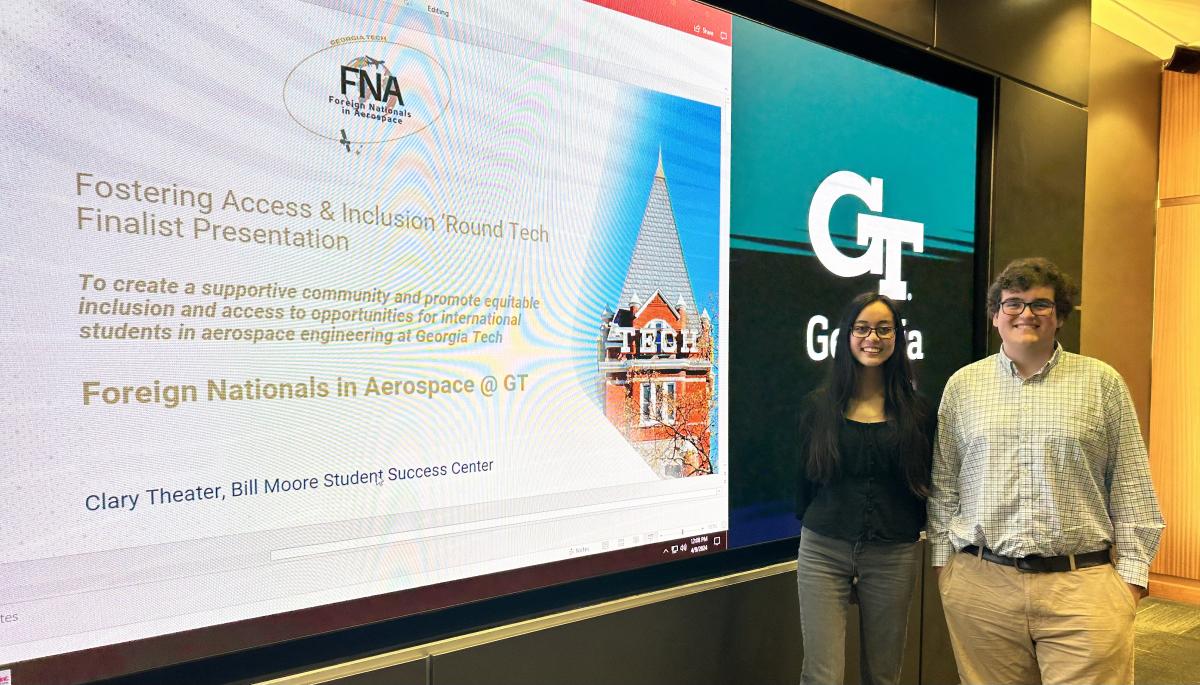
Jasrayman “Ray” Thind, left, and Alfonso Lagares de Toledo at the finalist presentations for the 2024 FAIR Tech student innovation competition. They were two members of the first-place team, a group of international students who proposed ideas to support career development and broaden access to research labs for their fellow international students in aerospace engineering.
(text and background only visible when logged in)
Empowering International Students in AE
The winning team of five AE students hailing from France, Canada, Spain, and India proposed a two-pronged approach to supporting fellow international students.
First, they outlined several initiatives to enhance career development and networking for students, including passing hard-earned knowledge from older students to younger ones. They proposed developing a comprehensive guidebook explaining export control regulations, offering networking and job search advice, and pointing students to companies with a track record of hiring international students after graduation.
The team also suggested recruiting more mentors with expertise on aerospace opportunities for non-U.S. students for the Mentors in Residence program in the Daniel Guggenheim School of Aerospace Engineering. And they will work with corporate engagement staff members to specifically highlight internship and job opportunities at companies that work regularly with foreign-born students.
Part of their pilot project efforts included launching a registered student organization in the spring called International Students and Professionals in Aerospace to build a community of students that could share experiences and help each other.
The second part of their effort was development of a standardized program to help international students gain practical experience on research projects with export control restrictions.
These federal regulations limit access to potentially sensitive technology, which means students from other countries often can’t contribute to government- or defense-funded research in AE, particularly space-related projects.
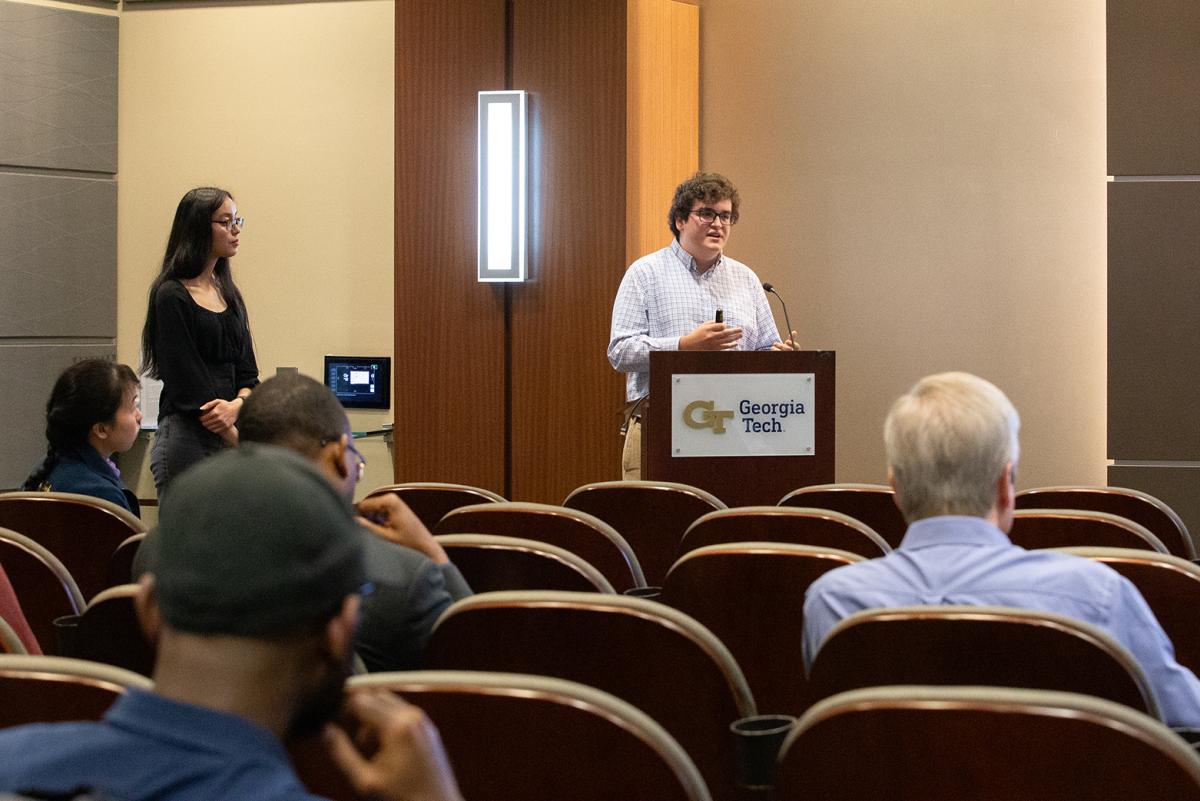
“Our aim is to streamline and democratize [the deemed export licensing] process, ensuring that more international students can contribute to and benefit from aerospace research at Georgia Tech.”
JASRAYMAN “RAY” THIND
Aerospace Engineering Ph.D. Student
“This regulatory framework is essential for safeguarding U.S. national security, and Georgia Tech faculty and students must comply,” said team member Alfonso Lagares de Toledo. “While crucial, this system inadvertently restricts international students from accessing numerous opportunities available to their domestic peers.
“The constraints not only limit participation but also hinder the competitiveness of these research groups by preventing them from tapping into the diverse talent pool offered by international students,” he added.
Non-U.S. citizens can secure a license from the U.S. Department of State or Department of Commerce to participate in export-controlled research. Team member (and now master’s degree graduate) Antoine Paletta successfully completed the process to work with Glenn Lightsey on the VISORS CubeSat project, a formation-flying mission to image the sun in high resolution.
“Realizing that expanding access to this licensing process could significantly enhance the participation of international students in cutting-edge projects, we conceived the Deemed Export Licensing Program,” said Ph.D. student Jasrayman “Ray” Thind. “Our aim is to streamline and democratize this process, ensuring that more international students can contribute to and benefit from aerospace research at Georgia Tech.”
Lightsey is working with the team this summer to get another student licensed to work in his research group. The goal is to launch the program more broadly in the fall after the initial trial run.
Other team members included master’s students Abinay Brown and Antoine Marin.
(text and background only visible when logged in)
MenstraMap
Frustration and embarrassment inspired fourth-year biomedical engineering (BME) students Sona Desai, Summer How, Mirna Jaber, and Jennah Walcott to consider how they could help women find menstrual products on campus.
“Anxiety caused by not having a product is a universal experience for women and increases the possibility of bleeding through one’s pants,” Jaber said. “We noticed consistently depleted stock levels in bathrooms across campus and conducted interviews to see how students perceive bathroom stock levels — specifically if and how low stock levels impact them while on their periods.”
Those 60 conversations confirmed the need: Most students said they’ve used on-campus products or asked a friend at least a few times per year.
The team decided to create MenstraMap, a web app with a map of available menstrual products on bathrooms and details on the stock level. A small force sensor would detect high, medium, or low stock of pads or tampons in real time. App users could update the data as well as report on vending machine menstrual products and pain relievers.
Jaber said prototype sensors in the Price Gilbert Library are feeding their test site, and they’re working to make the app available this summer.
The team also is participating in the CREATE-X Startup Launch program to refine the prototype and improve the business model — with the goal of one day expanding to colleges across the country.
“The FAIR Tech funding enabled us to develop a functioning prototype and improve our circuit-building and computer science skills. Thanks to this program, we now have the means to implement our prototype on campus and foster improved awareness and access to menstrual products,” Jaber said.
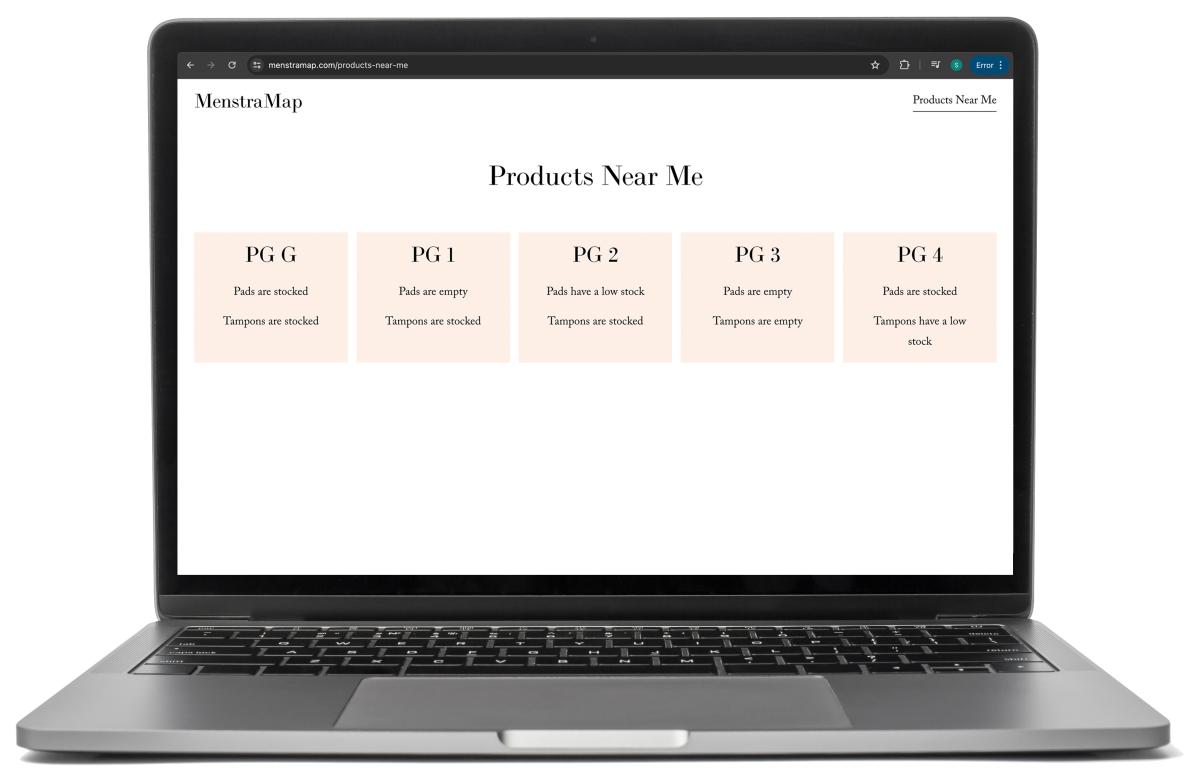
The MenstraMap prototype user interface shows simulated stock levels of menstrual products in Price Gilbert Library bathrooms.
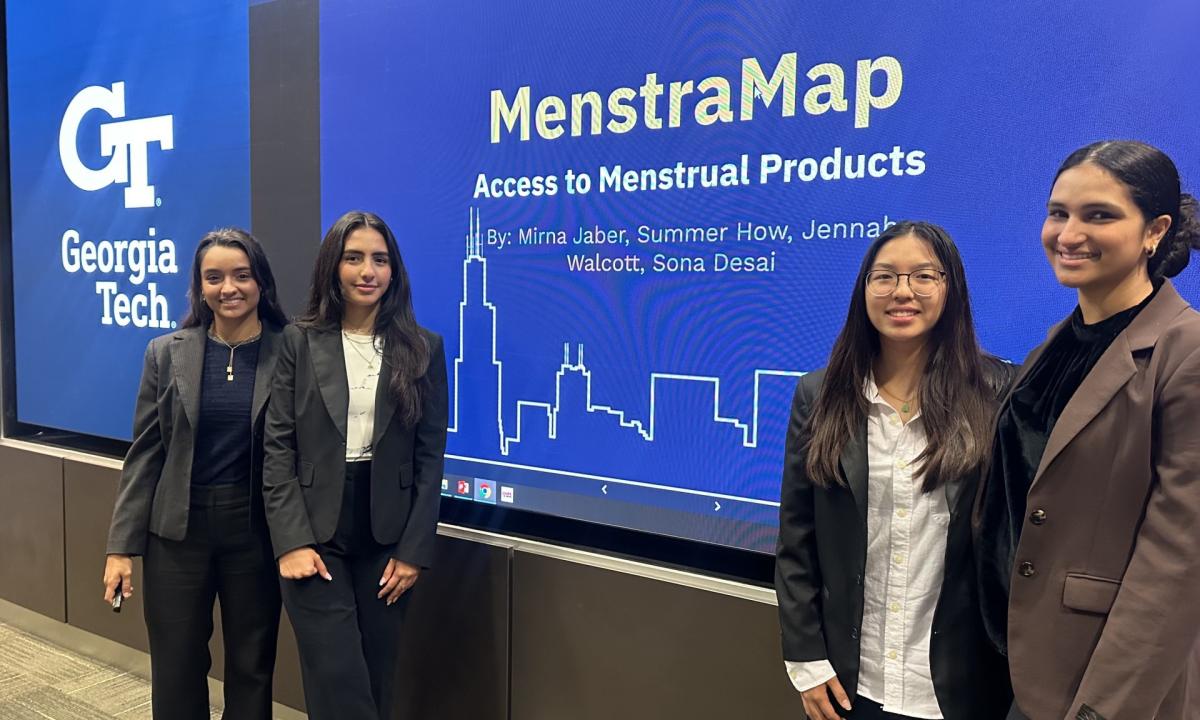
Team MenstraMap at the FAIR Tech competition presentations. From left, biomedical engineering students Jennah Walcott, Mirna Jaber, Summer How, and Sona Desai.
SenseOfHome for International Students
Another pair of BME students proposed a different app to help students.
SenseOfHome, developed by Maria Jose Jimenez and Paulina Morales, aims to foster community among international students and support their social, academic, and professional lives.
“The core issue we aim to address is the sense of isolation and lack of community that international students often experience,” the team wrote in their FAIR Tech proposal. “By providing a platform specifically tailored to their needs, the app seeks to bridge the gap between different cultural backgrounds and create a supportive, inclusive community.”
The app would mix public and private communication, networking, and cultural events. It would have public channels for different majors, courses, study groups, countries, and more — akin to platforms like Reddit or Discord.
Users could post broadly to those channels or find people in the directory and message them directly. The pair also envisions inviting alumni to join the app and connect with students.
Related Content
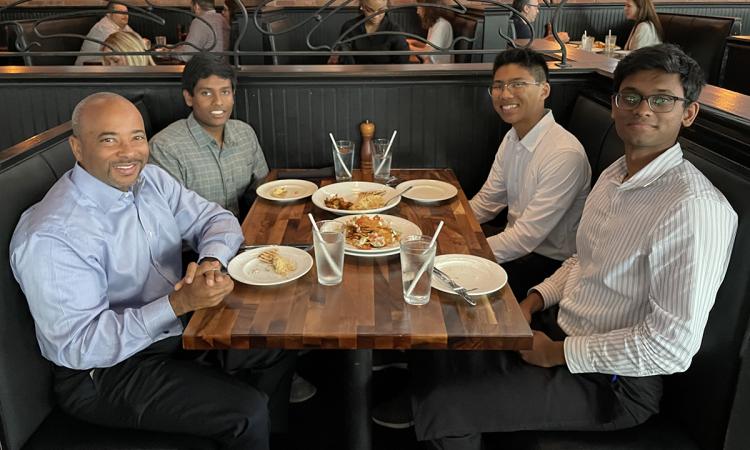
Virtual Reality Learning Tools Win Top Prize in Student Innovation Competition
Student teams present 3D animated visuals to help students better understand concepts along with ideas to improve students’ access to groceries and keep underrepresented minorities from abandoning engineering careers.